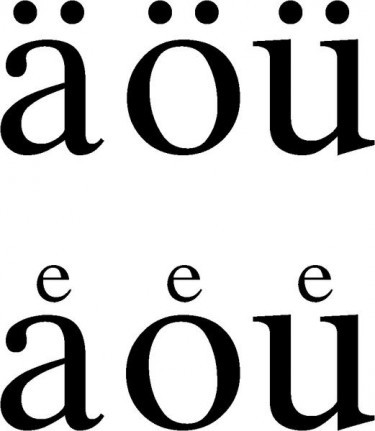Trüth, Beaüty, and Volapük

Arika Okrent, in The Public Domain Review, on a particularly dotty (!!!) language lovingly crafted by a particularly odd German priest:
“A language without umlauts,” he wrote, “sounds monotonous, harsh, and boring.” He decried the “endlessly gloomy u and o,” the “broad a” and the “sharp i” of umlautless languages. Though many members of the growing Volapük community may have agreed with his aesthetic judgment, many others thought that for Volapük to have a serious chance at being a world language, the umlauts had to go.
Not only is this article a shining beacon in the wilderness, it gives us an excuse to mention Okrent’s book In the Land of Invented Languages: Adventures in Linguistic Creativity, Madness, and Genius. NOW, did you try to come up with a language when you were a kid? Or did you just try to learn Elvish? TRICK QUESTION, the Elves spoke many different languages depending on their geographical location.
You could learn more, but Wikipedia tells us those jags in charge of Big Elvish are dragging their feet: “Two magazines Vinyar Tengwar, from issue 39 (July 1998), and Parma Eldalamberon, from issue 11 (1995), are exclusively devoted to the editing and publishing of J.R.R. Tolkien’s gigantic mass of unpublished linguistic papers. These are published at a pace considered by many to be excessively slow. The editors have not published a comprehensive catalogue of the unpublished linguistic papers they are working on. Even more disturbing for some is the fact that access to the unpublished documents is severely limited.”